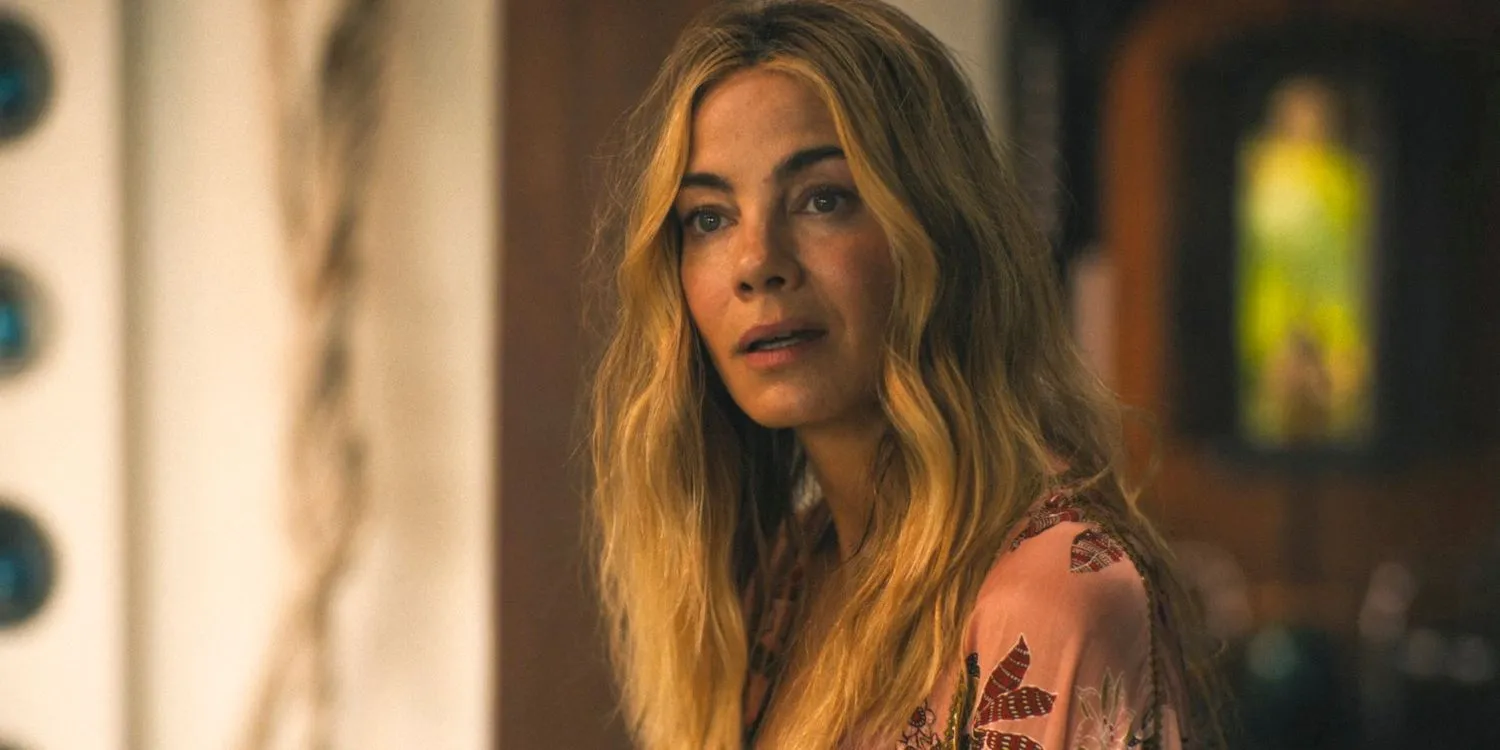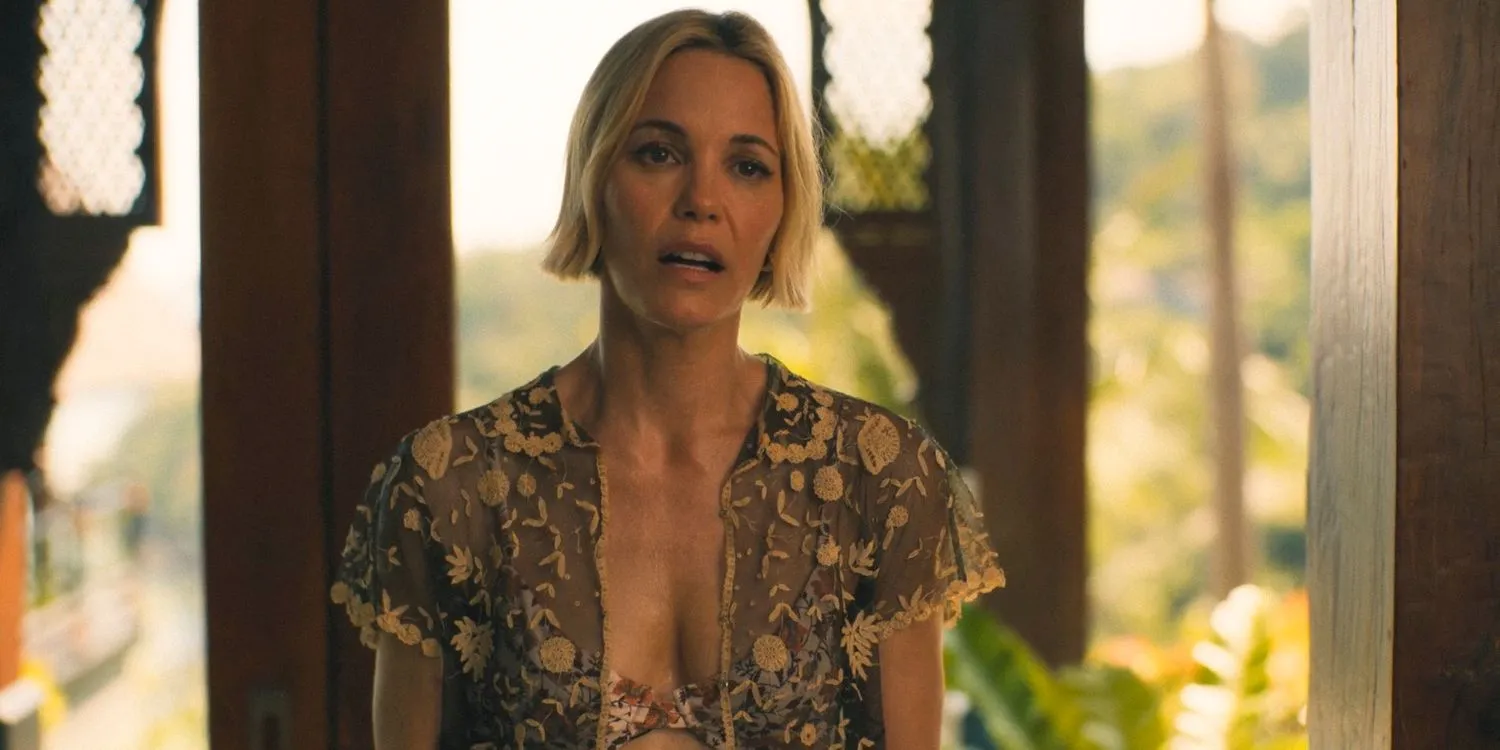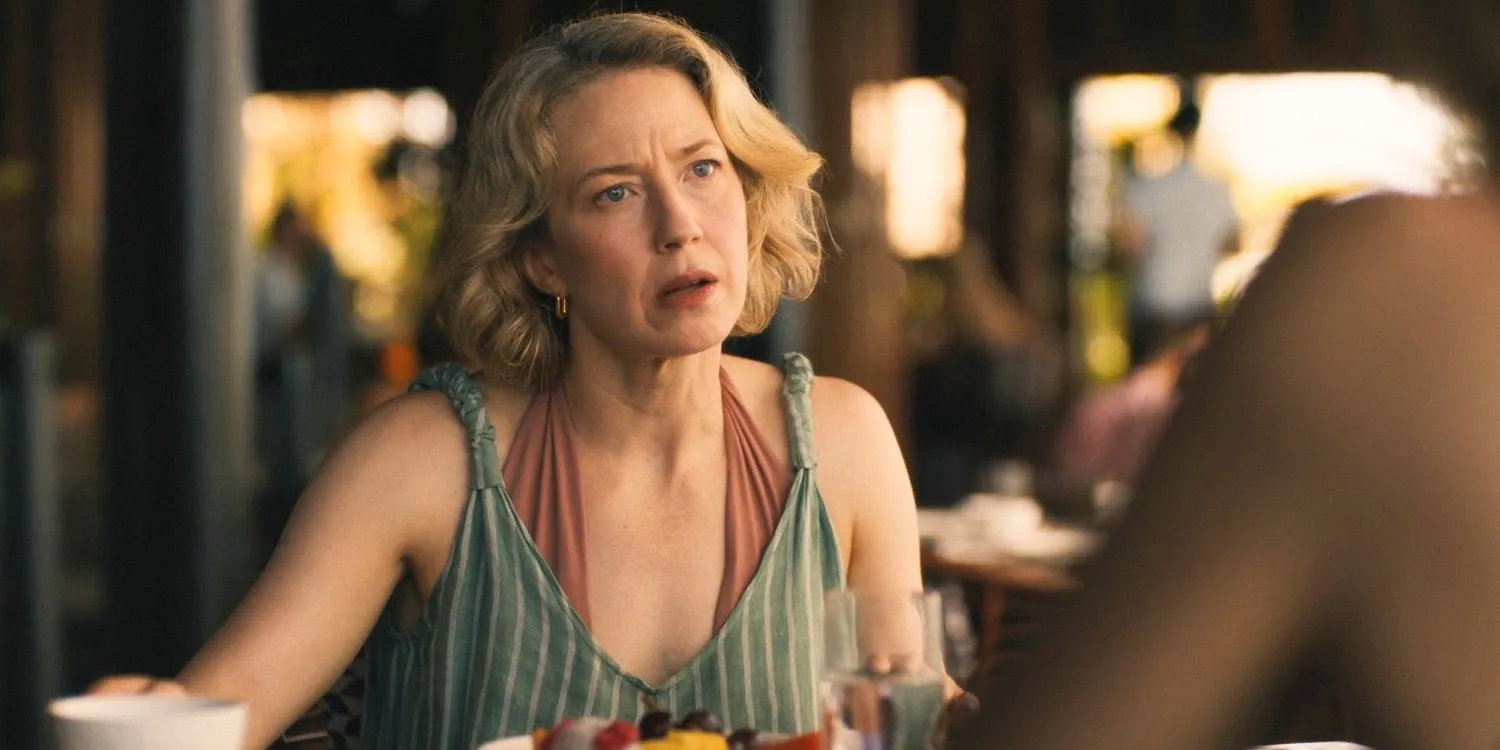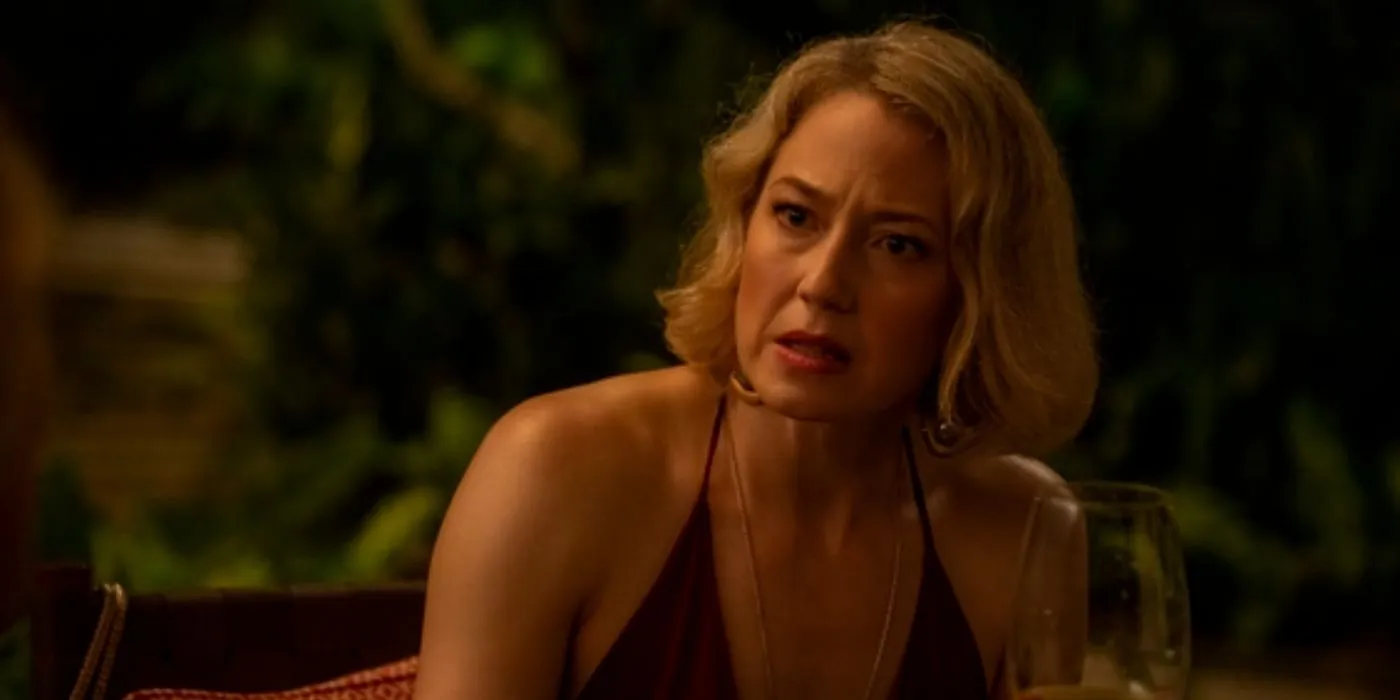The White Lotus actress Carrie Coon recently disclosed that creator Mike White had initially crafted a non-binary identity for Coon’s character, Laurie’s, child. The show’s third season, set in an opulent Thai resort, follows a new ensemble of affluent Americans who are entangled in their own dramatic narratives. Among them are Laurie, a New York lawyer, her childhood friends: Hollywood star Jaclyn (played by Michelle Monaghan), and Texas socialite Kate (portrayed by Leslie Bibb). Their tumultuous friendship adds a layer of complexity to their luxurious getaway.
During an interview with Harper’s Bazaar, Coon elaborated on how White decided to omit the detail regarding Laurie’s child being non-binary from the script after the outcome of Donald Trump’s reelection. Although Laurie’s teenage child, Ellie, is referenced throughout the season via gossip among Kate and Jaclyn, the depth of her character was scaled back in the edit. Coon explained:
There was a bit more context to her home life. You originally found out that her daughter was actually non-binary, maybe trans, and going by they/them. You see Laurie struggling to explain it to her friends, struggling to use they/them pronouns, struggling with the language, which was all interesting.
It was only a short scene, but for me, it did make the question [in episode 3] of whether Kate voted for Trump so much more provocative and personally offensive to Laurie, considering who her child is in the world. But the season was written before the election. And considering the way the Trump administration has weaponized the cultural war against transgender people even more since then, when the time came to cut the episode down, Mike felt that the scene was so small and the topic so big that it wasn’t the right way to engage in that conversation.
The Significance of Laurie’s Child’s Queer Identity in The White Lotus
A New Perspective on Season 3 with This Insight





Coon’s revelation provides a fresh lens through which to view the interactions among Laurie, Jaclyn, and Kate, deepening the narrative’s dramatic tension. In season 3, episode 2, Kate’s derisive remarks about Laurie’s parenting and Ellie’s challenges, such as repeated school expulsions, take on a different tone if viewed through the lens of Ellie’s non-binary identity. These comments suggest not only insensitivity but also highlight Laurie’s internal struggles in supporting a child confronting societal hurdles—issues her friends seem oblivious to.
In episode 3, the dinner-table confrontation regarding Kate’s voting choice uncovers further emotional complexity. Laurie’s discomfort with Kate’s admission is not merely a political disagreement; it represents a protective reaction tied to her child’s identity. The implications of Trump’s policies on transgender rights inject a personal grievance into Laurie’s response, transforming what might have seemed like a mere ideological conflict into a deeply felt betrayal. While White’s decision to remove the scene may have sidestepped a contentious discussion, it indeed risks limiting a fuller understanding of Laurie’s character and her motivations.
Reflections on Ellie’s Excluded Queer Identity
The Importance of Representation Today

Removing Ellie’s non-binary identity from the narrative feels like a missed chance for significant representation. Even a fleeting acknowledgment of diverse identities is impactful, particularly in our current political climate where gender identity and expression are under intense scrutiny. Incorporating Ellie’s character could have helped normalize the experiences of families raising queer children during this increasingly challenging cultural moment. Given the show’s reputation for incisive social critique, the addition of such a detail would not have been trivial; rather, it would have resonated powerfully and authentically with the audience.
Source: Harper’s Bazaar


